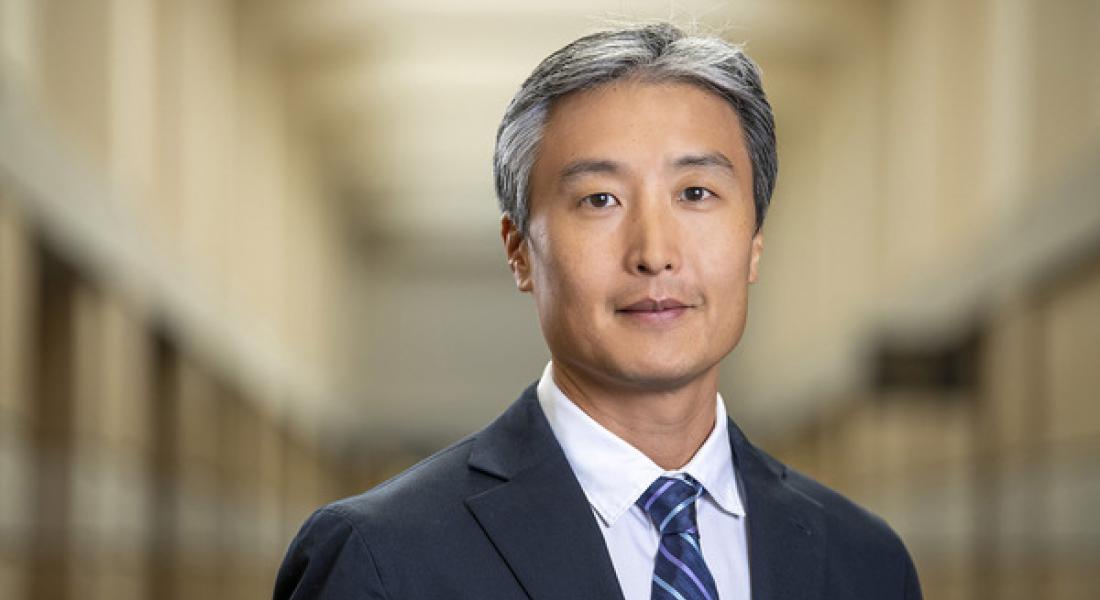
Amid growing concern about how artificial intelligence will shape the future of work, Keough School faculty member Yong Suk Lee, a Kellogg faculty fellow, conducts research that will provide answers — and put workers first.
His goal is to share evidence that both helps workers understand the impact of these new technologies and enables leaders to implement them ethically, in a way that empowers workers.
“This is very much tied to addressing inequality,” said Lee, associate professor of technology, economy, and global affairs at the Keough School of Global Affairs. “A key question is, how do we train workers to leverage these new technologies in their roles so that they can create value rather than being left behind?”
Lee presented research and helped lead discussions at a workshop Sept 18-19 in New York. The gathering of experts, which included computer scientists, economists and business scholars as well as musicians and artists, was hosted by The AI Alliance, Meta, and IBM.
Discussion focused how generative AI affects workers, and on training workers to better use these technologies, Lee said. Generative AI includes large language models such as OpenAI’s ChatGPT and Meta’s Llama, as well as tools that help generate images and video.
“Right now we don’t know the concrete impact that generative AI has on workers, but there is a lot of speculation and concern,” Lee said. “In order to design effective policy, training and ethical frameworks for generative AI, we need a near-real-time understanding of its impact on the labor market. My goal is to help provide that.”
Lee used Meta’s Llama 3 to analyze about 20,000 tasks and determine what percentage of them could be accomplished using state-of-the-art AI tools. He examined data from O*Net, the US Bureau of Labor Statistics’ Occupational Employment and Wage Statistics, and the Current Population Survey.
In occupations highly exposed to generative AI, Lee found, the unemployment rate increased by a relatively small amount. But there was considerable variation; more educated workers were more likely to be negatively affected.
Workers who had earned a bachelor’s or advanced degree were more likely to be unemployed than those without a bachelor’s degree, Lee said. Meanwhile, men experienced a larger increase in unemployment compared to women. Younger and older workers saw unemployment increases, but there was no observed effect among mid-career workers.
Unemployment patterns varied widely across occupations, Lee said. Even within computing or mathematical occupations, software developers and programmers were more likely to be unemployed. And among white-collar workers, those with roles in operations saw a relative rise in unemployment compared to managers.
Lee, the program chair in technology ethics for the Notre Dame Ethics Initiative, is using these findings to shape continued discussion of how the public and private sectors can adopt AI in such a way that workers benefit from it. His goal over the next year is to recommend a framework for ethical adoption, one that can guide employers as they decide how to implement new and potentially disruptive technologies.
“How are we going to actually use these technologies to upskill and train workers, and what are the best ways to go about that?” Lee said. “And how can we ultimately improve the productivity of workers and make the transition easier? As we continue to gather data and input, we can design plans that help employers address skill gaps and prepare workers so they can adapt and thrive in an evolving workplace.”
Related: Lee shares expertise at Notre Dame AI panel
Keough School expert Yong Suk Lee was one of several featured speakers at the recent virtual Notre Dame panel discussion “Decoding AI,” part of the ThinkND’s Game Changers series powered by IrishCompass. Experts discussed what’s coming and the impact on how people work, learn and live.
Lee is also a faculty affiliate of the Keough School’s McKenna Center for Human Development and Global Business and a faculty fellow of the school’s Pulte Institute for Global Development and Liu Institute for Asia and Asian Studies.





